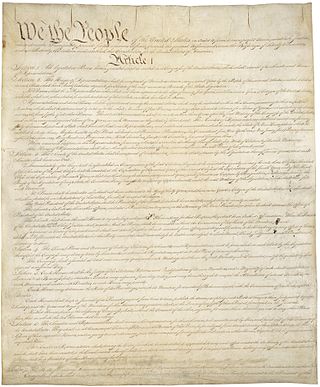“The Naturalization Act of 1790 says that the country is open to Free White Persons.”
There’s quite a bit of interesting history involved with this discussed at considerable length in the Dred Scott case from 1856, especially in the dissenting opinions given by Justice Maclean and Justice Curtis. For example, Maclean wrote:
In the argument, it was said that a colored citizen would not be an agreeable member of society. This is more a matter of taste than of law. Several of the States have admitted persons of color to the right of suffrage, and in this view have recognised them as citizens; and this has been done in the slave as well as the free States. On the question of citizenship, it must be admitted that we have not been very fastidious. Under the late treaty with Mexico, we have made citizens of all grades, combinations, and colors. The same was done in the admission of Louisiana and Florida. No one ever doubted, and no court ever held, that the people of these Territories did not become citizens under the treaty. They have exercised all the rights of citizens, without being naturalized under the acts of Congress.
Also, Curtis:
On the 25th of June, 1778, the Articles of Confederation being under consideration by the Congress, the delegates from South Carolina moved to amend this fourth article, by inserting after the word “free,” and before the word “inhabitants,” the word “white,” so that the privileges and immunities of general citizenship would be secured only to white persons. Two States voted for the amendment, eight States against it, and the vote of one State was divided. The language of the article stood unchanged, and both by its terms of inclusion, “free inhabitants,” and the strong implication from its terms of exclusion, “paupers, vagabonds, and fugitives from justice,” who alone were excepted, it is clear, that under the Confederation, and at the time of the adoption of the Constitution, free colored persons of African descent might be, and, by reason of their citizenship in certain States, were entitled to the privileges and immunities of general citizenship of the United States.
Did the Constitution of the United States deprive them or their descendants of citizenship?
That Constitution was ordained and established by the people of the United States, through the action, in each State, or those persons who were qualified by its laws to act thereon, in behalf of themselves and all other citizens of that State. In some of the States, as we have seen, colored persons were among those qualified by law to act on this subject. These colored persons were not only included in the body of “the people of the United States,” by whom the Constitution was ordained and established, but in at least five of the States they had the power to act, and doubtless did act, by their suffrages, upon the question of its adoption. It would be strange, if we were to find in that instrument anything which deprived of their citizenship any part of the people of the United States who were among those by whom it was established.
I can find nothing in the Constitution which, proprio vigore, deprives of their citizenship any class of persons who were citizens of the United States at the time of its adoption, or who should be native-born citizens of any State after its adoption; nor any power enabling Congress to disfranchise persons born on the soil of any State, and entitled to citizenship of such State by its Constitution and laws. And my opinion is, that, under the Constitution of the United States, every free person born on the soil of a State, who is a citizen of that State by force of its Constitution or laws, is also a citizen of the United States…
It has been often asserted that the Constitution was made exclusively by and for the white race. It has already been shown that in five of the thirteen original States, colored persons then possessed the elective franchise, and were among those by whom the Constitution was ordained and established. If so, it is not true, in point of fact, that the Constitution was made exclusively by the white race. And that it was made exclusively for the white race is, in my opinion, not only an assumption not warranted by anything in the Constitution, but contradicted by its opening declaration, that it was ordained and established by the people of the United States, for themselves and their posterity. And as free colored persons were then citizens of at least five States, and so in every sense part of the people of the United States, they were among those for whom and whose posterity the Constitution was ordained and established.
So it turns out that, despite being a nation in which white supremacy was enshrined in law, there were numerous places and times in America when this was honored more in the breach than in the observance. Without any Jewish “control” whatsoever, unless Christianity is admitted to be such a controlling influence, there had always been a strong undercurrent of anti-racism and of America being a “proposition nation,” which eventually and disastrously grew to the whirlpool of destruction that sucked the whole nation down into the carnage of the Civil War. After that, through ratification of the 13th, 14th, and 15th Amendments, it was made explicitly so.
Oh say can you see, by the dawn’s early light, a proud Christian nation of racial cuckolds? American patriotism = cuck pride!
